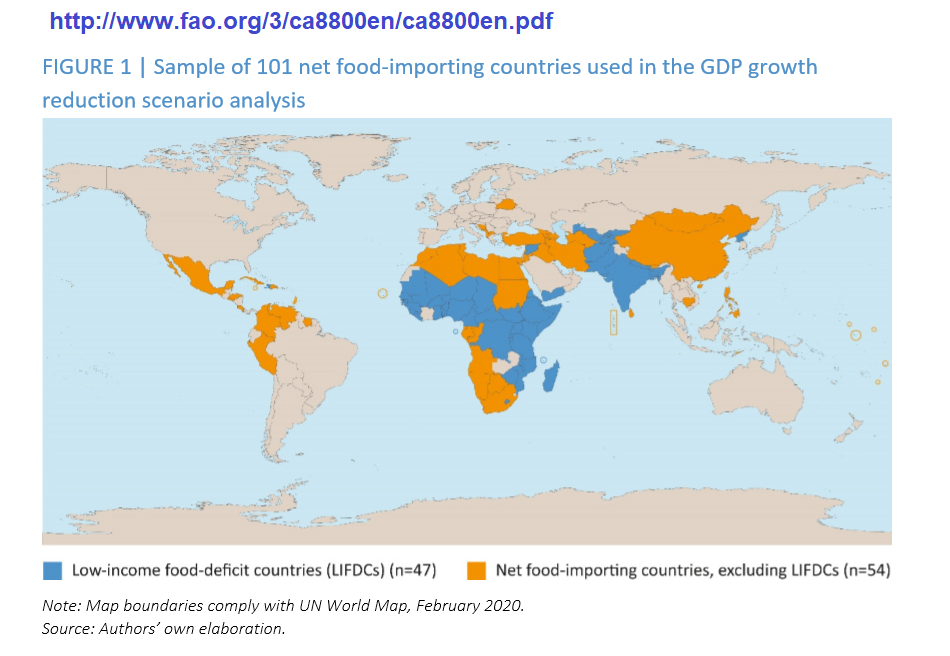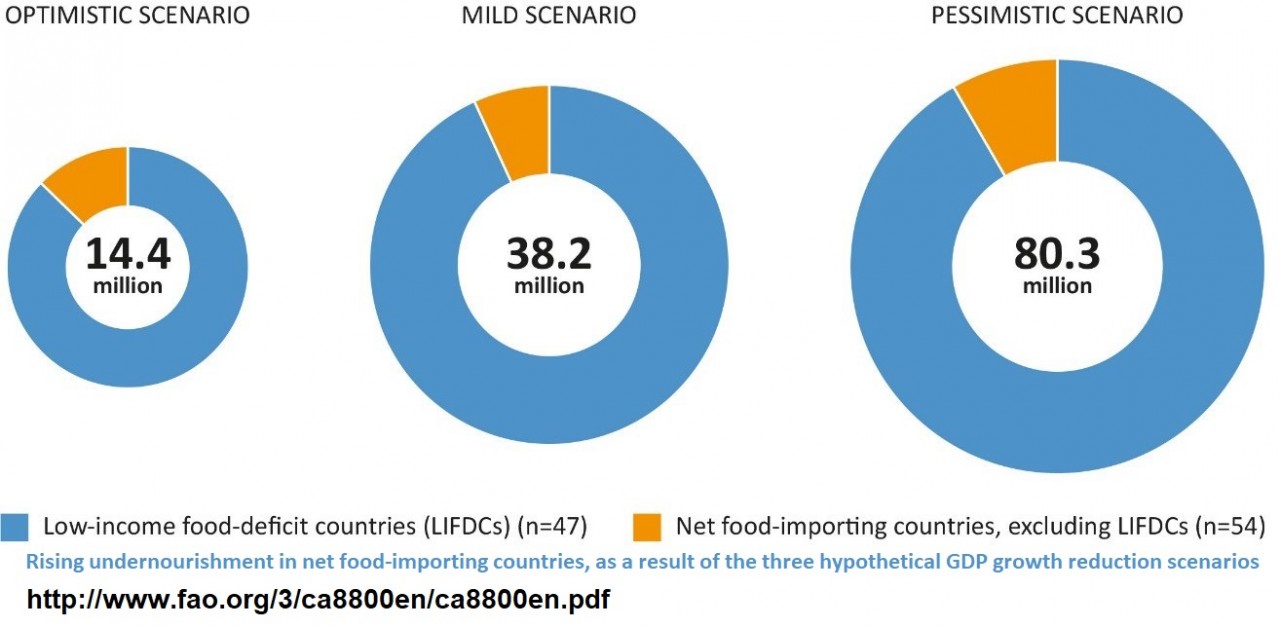Pick Up
26. New Coronavirus Pandemic― FAO Policy Recommendations: Recession and Hunger

The United Nations Food and Agriculture Organization (FAO) released a policy brief on April 24 to address long-term hunger and food insecurity due to the global recession caused by the novel COVID-19 and expressed the need for a policy to mitigate the impact.
Although the forecasts on the impact of COVID-19 vary in details, it is certain that all point to a historic downturn of the global economy. In January, the International Monetary Fund (IMF) predicted that the global economy would grow by 3.3% in 2020. However, the latest projection in April indicates a contraction of 3.0% that also includes many risks. The World Bank also reports that Sub-Saharan Africa will face the first recession in 25 years.
FAO's analysis of past food supply (related to hunger) and economic trends shows that without timely and effective policies, millions of people will starve as a result of the global economic recession caused by COVID-19. The exact numbers will vary according to the severity of economic contractions. In case the new coronavirus has caused a global recession reducing GDP growth in all countries by 2-10% in 2020, it is expected to cause food shortages for 14.4 million to 80.3 million people in net food-importing countries, with the majority of the increase coming from low-income countries. It further warns that if the current inequality in food access worsens, the actual consequences will be worse.
In order to respond to COVID-19, the governments in each country need to carry out large-scale policy interventions. FAO calls on all countries' economic stimulus to do their best to maintain trade flows, sustain food supply chains and increase agricultural production.
At the same time, food access is important, and inequality in access to food must not increase. The crisis could also be an opportunity to address the inequality of access to healthy food, which is a longstanding problem in many low and middle-income countries. Cash transfers, income compensation and food distribution should be directed to the most vulnerable and poorest people. International cooperation and assistance are also needed to support the poorest and most vulnerable countries.
Public incentives aimed at strengthening food access during pandemics also provide an opportunity for food systems to be resilient. And that will also help protect the food system in the event of future economic downturns and recessions.
References
FAO (2020). COVID-19 global economic recession: Avoiding hunger must be at the centre of the economic stimulus. Accessed on May 1, 2020.
FAO (2020). COVID-19: Using economic stimulus to reduce the long-term hunger impact. Accessed on May 1, 2020.
World Bank (2020). An analysis of issues shaping Africa’s economic future. Africa’s Pulse, Volume 21. Accessed on May 1, 2020.
Contributor: SHIRATORI Sakiko (Research Strategy Office)


